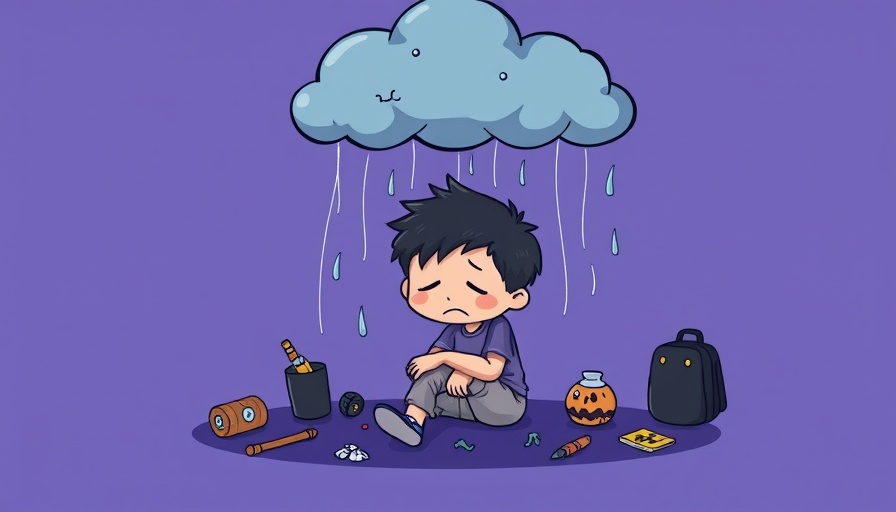
Understanding the Dual Nature of Technology
In a world increasingly dominated by screens and information overload, it's easy to paint technology as the villain in our lives. However, embracing technology as an extension of our nature rather than viewing it as a separate entity can significantly enhance the way we engage with it. As highlighted in recent discussions about mindfulness and mental health, reframing our relationship with technology provides a pathway to balance that many individuals crave in today’s fast-paced society.
Why Acceptance is Key to Managing Tech Use
Just as our thoughts shouldn't be banished during meditation, technology shouldn't be wholly rejected. The guilt associated with our dependency on gadgets can compound feelings of anxiety and isolation, leading many to believe they are 'broken' for needing devices to navigate modern life. Instead, acceptance becomes the first step toward creating a healthier relationship. By recognizing that technology is interwoven with human experience, we can cultivate a mindset that supports well-being while leveraging the benefits that technology offers.
Incorporating Mindfulness into Technology Use
The practice of mindfulness acts as a transformative tool in managing the distractions that technology creates. Mindfulness involves observing our thoughts, feelings, and urges without judgment. When applied to our tech interactions, it can help us pause and assess what technologies genuinely enhance our quality of life. Digital mindfulness encourages focused awareness—such as being intentional about when and how we interact with our devices. Research indicates that these practices aid in reducing stress and can even improve emotional stability. By creating ‘tech-free’ zones or times, individuals can offer themselves the chance to reconnect with their thoughts and surroundings.
Balancing the Benefits and Drawbacks of Technology
The digital age presents unique challenges but also abundant opportunities for mental health and wellness. While overuse of technology can lead to anxiety and social isolation, strategic use can improve access to resources and foster connections that support our emotional well-being. The key lies in maintaining control: using technology as a tool to enrich rather than dominate our lives. Establishing personal boundaries around tech use and utilizing mindfulness practices enables users to harness the good that technology presents.
Taking Practical Steps Toward a Healthier Relationship with Tech
It's essential to implement actionable strategies for using technology mindfully. Here are some steps to consider:
- Set Boundaries: Designate specific times for tech use and unplugging. This might involve shutting down devices during meals or implementing a 'screen-free Sunday.'
- Engage in Self-Care: Prioritize refreshing activities like outdoor walks, reading, or any hobby that fosters engagement without screens.
- Check Your Online Habits: Evaluate how much time is spent on social media or aimless browsing. Ensure that your content consumption is positive and uplifting.
Future Perspectives on Tech and Mindfulness
The ongoing evolution of technology means that we must continue to adapt our approaches to it. The rise of mental health apps provides accessible tools for self-care while driving the importance of mindfulness in our digital interactions. As individuals increasingly rely on technology for everything from work to social interactions, integrating mindfulness into our digital routines will be almost imperative. The future lies in leveraging innovation to promote emotional well-being while maintaining the essence of human connection.
Conclusion: Embracing Tech as Part of Our Human Nature
Your relationship with technology can transform from one of guilt and shame to one of empowerment and growth. By embracing the dual nature of technology—both its challenges and its benefits—you can open the door to a more balanced and enriched life. With proactive planning and mindset shifts, we can confidently navigate the digital landscape while cultivating our mental wellness.
 Add Row
Add Row  Add
Add 




Write A Comment